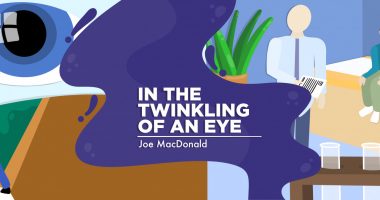Where Are the Voices of Filipino PWDs?

I’ve been busy setting up my personal website and blog lately. So far, chronic illness and disability are two of my major themes. My husband, Jared, has hemophilia and a seizure disorder, and I see him face the challenges of being disabled every day. His conditions affect our marriage, family, and the way we live.
Recently, I went social media sleuthing for potential blogging connections in the disability community. While I discovered a huge number of disabled bloggers from Western countries, not a single person with disabilities (PWD) blogger from the Philippines appeared. That didn’t surprise me much, considering that PWDs aren’t too visible in my country.
I once mentioned to my husband that I rarely see people using mobility aids. When I do, it’s usually in an affluent part of the city where I live. I’ve never seen a person in a wheelchair using public transportation. Doing so in a wheelchair is in fact physically impossible, because our public utility vehicles aren’t equipped to accommodate such equipment.
Meanwhile, the general populace seems to lack awareness of invisible disabilities. My husband is by all means a PWD, yet people often doubt this because he doesn’t look disabled and he doesn’t always need help from others.
An article by the University of Washington’s D Center includes the following quote from a reader named Jan. They paint an accurate picture of our culture’s attitude toward disability:
“In the Philippines, disability is perceived as something that is more work of the evil rather than it being more common and medical. Therefore, people with disabilities in the Philippines are belittle[d] or are seen as baggage from their family because in the Philippines there are no job opportunities nor rights for people with disabilities, therefore, majority of them are poor, homeless, in the streets for some of them are neglected by their family especially the government.”
Knowing this, I’m not surprised that some PWDs I know struggle with their identity as disabled individuals. Some even go to great lengths to hide their disability, simply to feel like they are entitled to the same rights as “normal” people.
I remember hearing a heartbreaking story a few years back. A local person with hemophilia (PWH) entered a hospital bleeding profusely from his hand. He was simply doing his job manning a food cart franchise, when he accidentally deeply cut his hand with a sharp knife.
I wondered at the time: If the franchise owner had known about the man’s hemophilia, would they have allowed him to work there? What if that was his only opportunity? Would he qualify for other jobs?
In our country, going to school is hard enough. Good schools tend to charge high tuition that most can’t afford. While public schools are an option, they tend to be crowded and underfunded. Inclusivity is sadly not a priority. As a result, disabled or chronically ill students may struggle more.
If that injured PWH didn’t have to work at a food cart, he wouldn’t have had that accident. But so many PWDs risk their lives when they choose not to disclose their disability. They feel that the risk is worthwhile if it allows them to make money.
A local person with epilepsy shared in an online forum that they took on a call center job, fully aware of the long and stressful shifts. They also didn’t inform management of their condition. What would they say if superiors saw them having a seizure? Perhaps, “It’s a one-time thing. I’m just tired. Let me rest in the break room and I’ll be fine.”
If the food cart worker with hemophilia and the call center agent with epilepsy have anything in common, it’s that they are capable. They work hard and have goals in life. I imagine they also possess a real desire to support their families.
Sadly, many well-meaning advocates tend to frame PWDs as charity cases to attract donations. While this is reasonable, given our country’s current financial state, we mustn’t stop there. We must take our advocacy one step further and highlight the PWD’s innate potential to contribute to society.
I like to use the analogy of a venture capitalist wanting to invest in a small business. If the former is made aware of the latter’s great potential, wouldn’t they be more excited to invest? At the same time, this would also raise morale among staff of the small business. Win-win!
If people’s attitudes toward PWDs don’t change, the PWD won’t speak up to share their experiences. The cycle of miseducation regarding disability will continue, and the PWD’s voice will always remain silent.
***
Note: Hemophilia News Today is strictly a news and information website about the disease. It does not provide medical advice, diagnosis, or treatment. This content is not intended to be a substitute for professional medical advice, diagnosis, or treatment. Always seek the advice of your physician or another qualified health provider with any questions you may have regarding a medical condition. Never disregard professional medical advice or delay in seeking it because of something you have read on this website. The opinions expressed in this column are not those of Hemophilia News Today or its parent company, BioNews Services, and are intended to spark discussion about issues pertaining to hemophilia.








Comments